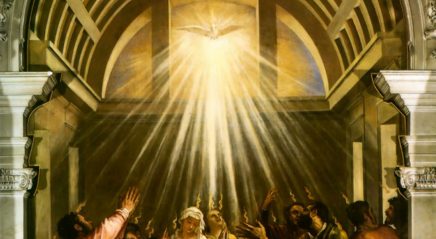The Gospel reading for the Fifth Sunday after Pentecost offers the familiar story of the good Samaritan. It’s a story about loving beyond our comfort zone, extravagantly loving those who stand in need and loving without limits.
This story flips the idea of greatness on its head. Greatness isn’t defined by the in-crowd or someone’s role. The religious leader and priest aren’t the ones who come out of this story smelling like a rose. Instead, greatness is defined by who loves. In this story, it’s the Samaritan—the one outcast by the community—who shows love without limits.
What does this mean for us today? It means we can’t settle for a world where anything less than love and compassion is accepted as the standard. We have to keep reminding our leaders to see those who are lying on the side of the road, bleeding. We have to keep calling for justice, demanding change until it comes. We can’t be content with silent voices.
We love by continuing with the relentless pursuit of better and by not settling for less.
Martin Luther King Jr. talked about the good Samaritan in his last sermon, “I’ve Been to the Mountaintop,” the day before he was assassinated. He compelled his listeners to employ a dangerous unselfishness. Speaking of the Jericho road, King said: “It’s a winding, meandering road. It’s really conducive for ambushing. You start out in Jerusalem, which is about 1,200 miles, or rather, 1,200 feet above sea level. And by the time you get down to Jericho 15 or 20 minutes later, you’re about 2,200 feet below sea level.
We have to keep reminding our leaders to see those who are lying on the side of the road, bleeding.
“That’s a dangerous road. … So the first question that the priest asked, the first question that the Levite asked was, ‘If I stop to help this man, what will happen to me?’”
But then, King continued, the good Samaritan came by and reversed the question: “‘If I do not stop to help this man, what will happen to him?’”
To his congregation, King said: “That’s the question before you tonight.”
That was the question before those present with King on April 3, 1968, and that is the question before us today. If we don’t stop to help our neighbor, what will happen to them?
Every day we have opportunities to be like the good Samaritan. There are people hurting around us—some bleeding from the body, like the man in the text, but likely many more who are bleeding from the soul. We can extend God’s grace to a hurting world. And when we’re the one hurting, the one bleeding on the side of the road, God’s grace will reach us too. Through the love of others, we receive the love of Christ—holding us, wiping us clean, healing us. We get to return the favor by loving without limits.







